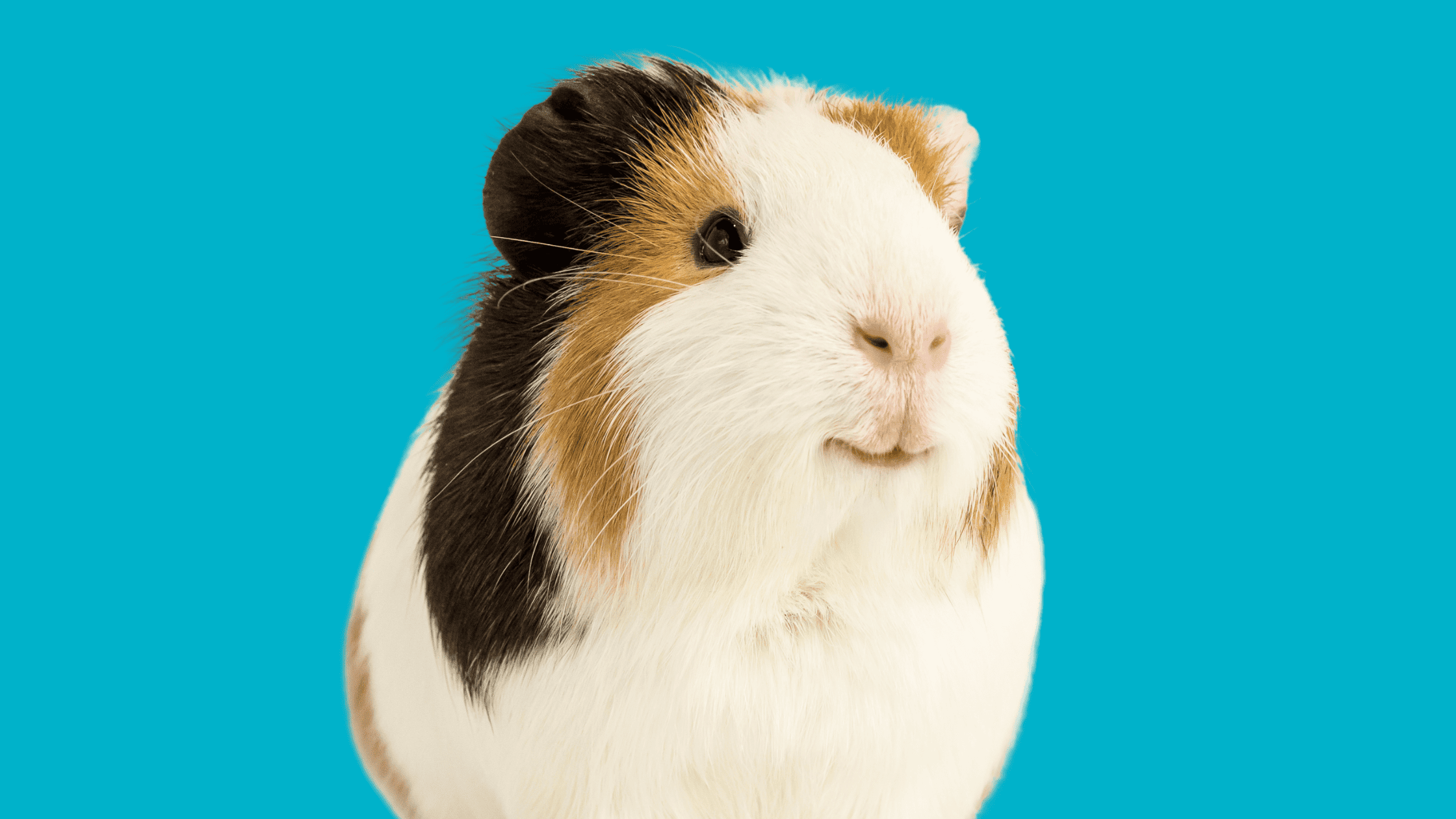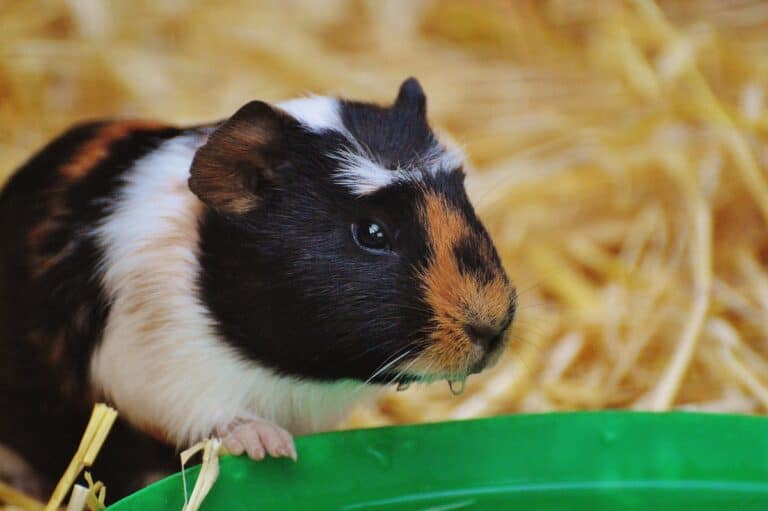The Truth About Guinea Pig Urine Stains: Can They be Removed?
Guinea pigs are fun and adorable pets, but they can be quite messy. One common problem that guinea pig owners face is urine stains. These stains not only make the cage smell bad, but they can also be unsightly and difficult to remove. In this article, we will discuss everything you need to know about guinea pig urine stains and how to deal with them.
What causes guinea pig urine stains?
Is it normal for guinea pigs to have urine stains?
Guinea pigs pee a lot, and it’s normal for them to have urine stains in their cage. However, if the stains are excessive or if you notice blood in the urine, it may indicate a health problem that requires a vet’s attention.
Can urine stains indicate a health problem in guinea pigs?
As mentioned earlier, excessively stained bedding or blood in the urine can be signs of a health problem in guinea pigs. Other signs of a urinary tract infection may include incontinence, reluctance to move, and a change in appetite.
Why do guinea pigs produce so much urine?
Guinea pigs are herbivores, and their diet is rich in water and minerals, which explains why they produce so much urine. However, excessive urine output can be a sign of underlying health issues such as bladder stones or a urinary tract infection.
How can guinea pig urine stains be removed?
What is the best way to clean a guinea pig cage?
The best way to clean a guinea pig’s cage is to remove all the bedding and scrub the cage thoroughly with warm water and disinfectant. Allow the cage to dry completely before adding fresh bedding.
What is the best type of bedding to prevent urine stains?
Guinea pigs love to burrow and hide, so a soft and absorbent bedding like fleece or paper bedding is ideal. Avoid using wood shavings as it can be sharp and may cause respiratory problems or injury to your guinea pig. Changing the bedding frequently can also help prevent urine stains from accumulating.
Can white vinegar remove guinea pig urine stains?
Yes, white vinegar is an effective and natural way to remove guinea pig urine stains. Simply mix equal parts of water and white vinegar in a spray bottle and apply the solution on the stained area. Allow it to sit for a few minutes before blotting it with a clean towel.
Guinea pigs are small rodents known for their gentle nature and social behavior. They require a clean living environment to thrive, which includes regular cage cleaning and bedding changes. However, accidents can happen, and urine stains may occur.
how to remove guinea pig urine stains
To remove guinea pig urine stains, one can mix equal parts water and white vinegar and apply the mixture to the stained area. Allow it to sit for a few minutes before blotting it up with a clean cloth. Repeat the process as needed until the stain is gone. It is important to clean and sanitize the cage regularly to prevent future stains and maintain a healthy environment for the guinea pig.
How to prevent guinea pig urine stains?
What diet is best for guinea pigs to reduce urine stains?
A balanced diet that’s high in fiber and digestible protein is best for guinea pigs. Avoid feeding them excess calcium-rich foods like alfalfa hay, as it may lead to the formation of bladder stones. Opt for timothy hay or orchard grass, and provide fresh vegetables like spinach, carrots, and bell peppers.
How often should I clean my guinea pig’s cage?
Cleaning your guinea pig’s cage should be done at least once a week. However, if you notice any urine stains or if it starts to smell, it’s time to get cleaning. In between cleaning, spot clean the cage by removing any soiled bedding.
Can guinea pigs be trained to pee in a specific area of their cage?
Yes, guinea pigs can be trained to pee in a litter box or a specific area in their cage. Place a litter box with bedding in the corner of their cage, and encourage them to use it by placing some soiled bedding in the box. Eventually, they will learn to associate the box with urination.
What are some signs of a urinary tract infection in guinea pigs?
Can a guinea pig’s urine color indicate health problems?
Yes, the color of a guinea pig’s urine can indicate health problems. Normal guinea pig urine is straw-colored to orange-red, but if it appears cloudy, dark, or has blood in it, it may indicate a urinary tract infection or other health issues.
What should I do if I suspect my guinea pig has a urinary tract infection?
If you suspect that your guinea pig has a urinary tract infection, take them to the vet immediately. The vet may perform a urinalysis, prescribe antibiotics or other medication, and advise on changes to the guinea pig’s diet and lifestyle to eliminate or reduce the risk of further infections.
What is the treatment for a guinea pig’s urinary tract infection?
The treatment for a guinea pig’s urinary tract infection may include a course of antibiotics, fluids, and other medication or supplements depending on the severity of the infection. It’s crucial to manage the infection promptly to prevent more serious health issues from developing.
How to maintain a healthy guinea pig’s urine?
How much calcium should a guinea pig have in their diet?
A healthy guinea pig’s diet should contain about 20-40 mg of calcium per 100g of food. Too much calcium can cause bladder stones or other health problems, so it’s important to regulate their calcium intake.
What are some common mistakes that might affect the guinea pig’s urine?
Some common mistakes that may affect a guinea pig’s urine include feeding them too many calcium-rich foods, poor cage hygiene, and a lack of fresh water. It’s essential to maintain a healthy diet, keep their cage clean and dry, and provide fresh water every day.
How can a fleece liner help with urine control in guinea pig cages?
A fleece liner is an absorbent and washable liner that can help control urine in guinea pig cages. It’s soft and comfortable for your guinea pig and prevents the bedding from getting soiled too quickly, reducing the need for frequent changes. However, remember to spot clean the area soiled by your guinea pig’s urine even with a fleece liner.
Guinea pig urine color can be an indicator of their overall health.
Typically, guinea pig urine should be a pale yellow color, indicating that they are properly hydrated.
If the urine appears dark or discolored, it could be a sign of dehydration or a potential health issue that a veterinarian should address. Keeping an eye on the color of a guinea pig’s urine can help owners monitor their pet’s well-being and catch any potential health concerns early on.







